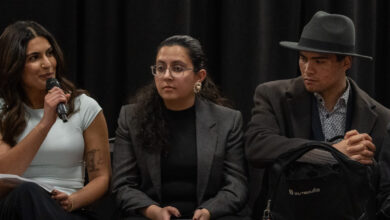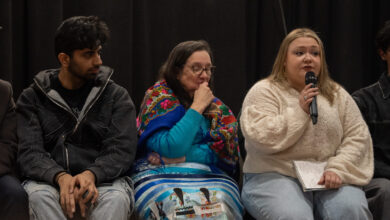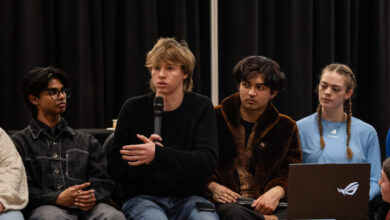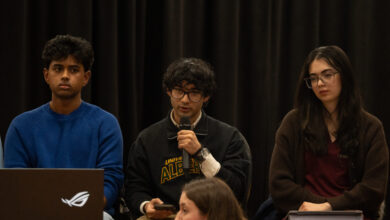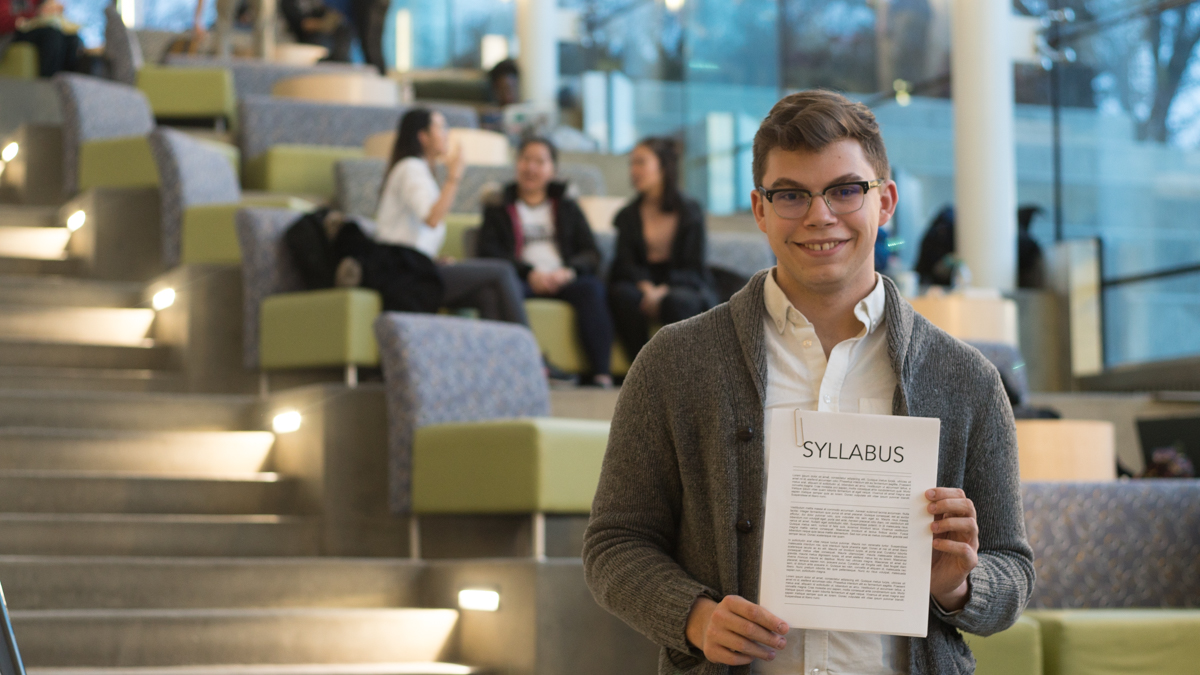 Richard Bagan
Richard BaganJonah Dunch is the Vice President of Departmental Affairs for OASIS, the Organization for Arts Students and Interdisciplinary Studies.
One issue endemic to the modern university campus is the potentially fractious power relations between central administration and faculties. From budget allocation (which, in the case of massive research institutions like the U of A, leads to shining hallways in ETLC and cracked floors in Humanities) to leadership initiatives (last year the Faculties of Arts and Science launched a joint leadership certificate, just as the PLLC was catching heat), the university is a site of federalist vs. republican politics. Indeed, like in so many other ways, the academy here stands as a microcosm of political society at large: as provinces bicker over pipelines, faculties bicker over calendar changes.
It is within this network of power relations that a new problem has now emerged: Students’ Union vice-president (academic) Shane Scott’s campaign promise to create a syllabus database for students is stuck in the pipeline.
While Scott initially planned to finish the project during his term, tense negotiations with deans of various faculties brought the project to a grinding halt this past fall. Scott now says students can expect to see a new system to access syllabi for courses across campus rolling out for use in the Fall of 2018.
Scott’s plan to finish the project during his term was originally tied to a partnership with the Office of the Provost on their syllabus technology project. The project aimed to develop a syllabus database using a fill-in-the-blanks syllabus generator on e-class. Using this tool, department chairs would be able to access syllabi for courses taught in their department. Scott has advocated for developing a front-end for the system through BearTracks so students can access the whole range of syllabi as well.
“At the time, the plan was for the new e-class tool to roll out successively (to different faculties) over the year,” Scott said. “As we went through the semester, they kept developing the tool. I got to see it a few times in use, which was exciting.”
As the school year progressed, however, some faculties, such as arts, science, and engineering, raised questions over whether syllabi were instructor’s intellectual property, and whether they should be publicly available over the internet given their connection to specific courses and faculty members. Some faculty personnel expressed concern that instructors’ course design could be taken from the web and plagiarized by instructors elsewhere, which Scott said is a non-issue since many instructors post their syllabi online anyways.
“One thing that’s very common on campus is this idea of academic freedom,” Scott said. “Some of the faculties think that having a restrictive, automated tool takes away from the individual academic freedom (of instructors).”
Scott said some deans have not been on board with the idea of a syllabus database out of a concern to protect their faculty members.
“It’s reflective of how decentralized our university is. All our faculties tend to act as silos on various issues,” Scott said. “But (the dean’s role as faculty gatekeeper) is unfortunate when it causes institution-wide projects to come to a halt.”
Scott said he recently found out the project to create an e-class syllabus tool may not continue. Scott said he has been discussing other ways to create a syllabus database with the Vice-Provost (Programs) and Vice-Provost (Learning Initiatives). As an alternative plan, Scott hopes to see more coordination at the department-level to enforce the collection and storage of syllabi for students and administrators to access.
“(The e-class tool) was something that just kind of got roadblocked along the way,” Scott said. “Some of the issues are a bit more rooted in the policy around course syllabi, as outlined in the grading policy in the academic calendar.”
Scott has now secured a spot on a university working group to review policy concerned with what syllabi include and how they are stored and collected. He said he hopes to plant the seeds for a syllabi database through policy reforms on this committee. Scott said these policy changes will make syllabi content consistent across campus and require administrators to collect and store syllabi.
“Unfortunately, our (Students’ Union executive) terms kind of abruptly end on April 30,” Scott said. “A lot of the project work we do is kind of passing the torch, so to speak.”
As the university navigates questions of academic freedom in this and other areas, one might reflect on the motives of the various parties involved. For central administration (the Vice-Provosts), the syllabus database project serves to impose order on an unruly aspect of academic life (seriously, some Syllabi are wacky and we shouldn’t accept that). For the faculties (the Deans and their colleagues), the project may serve to impose undue restrictions on the freedoms of instructors. This, in turn, compromises the integrity of syllabi as unique pedagogical blueprints. As is often the case, we students are caught in the middle.
A syllabus database, if kept flexible and secure, doesn’t strike me as a big deal for academic freedom – it could even bolster the status of syllabi as intellectual property by introducing standardized copyright protections. But I am sympathetic to the cause of faculties to question all such efforts to centralize the activities of instructors – tenured academics in particular have special legal rights different from other sorts of employees to freedom of subversion and autonomous action. These rights are meant to safeguard the academy’s role as a site for the free exchange of ideas – a role which is largely at odds with trends of corporatization in contemporary universities. The idea of a syllabus is part of this trend, so it makes sense for faculties to be cautious. That said, having a syllabus database honestly seems like a cool thing for students, and not a big deal for instructors. I’m all about it. But no matter what shiny new tools the SU and the Provost’s Office pedals, the crackling intellectual energy of a campus where interminable ideas and interests dance together in a discursive tango – that’s the sort of campus I want to go into debt for.

